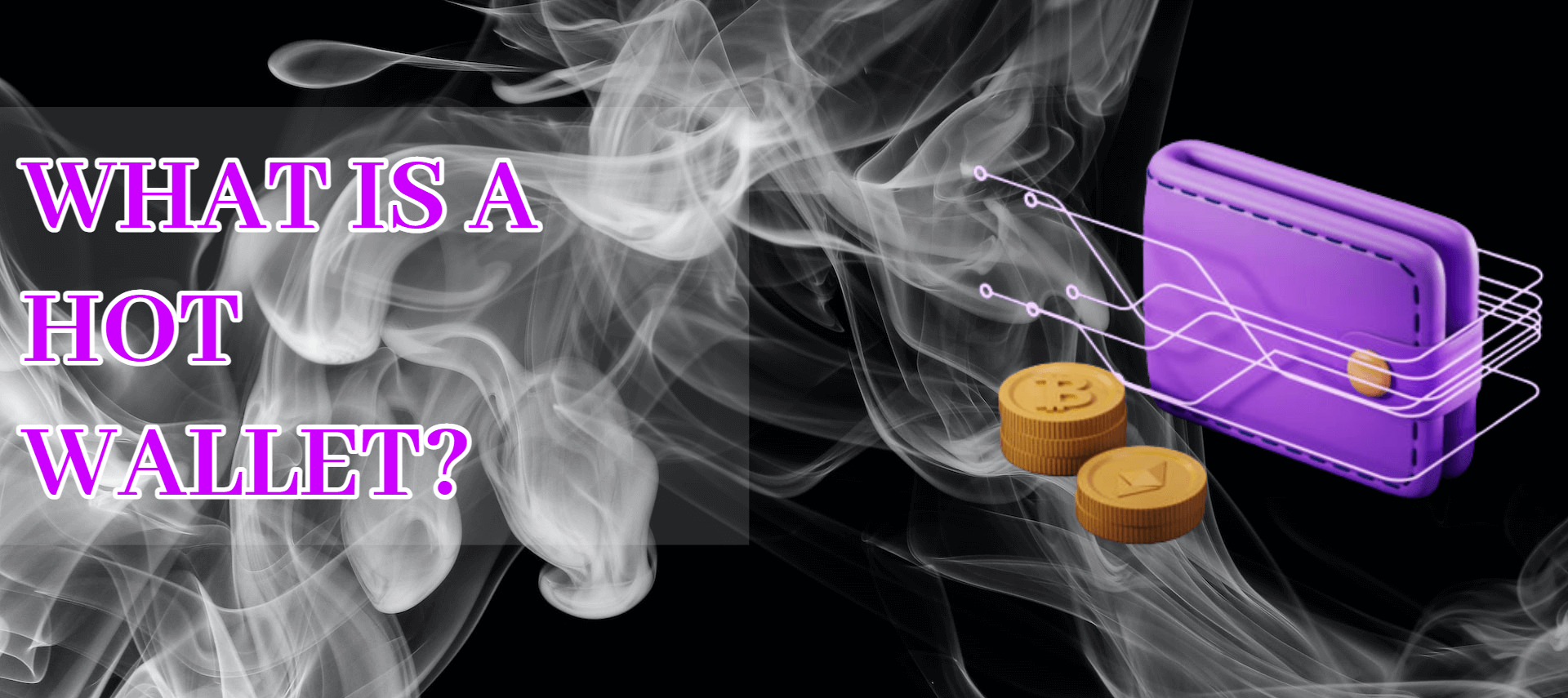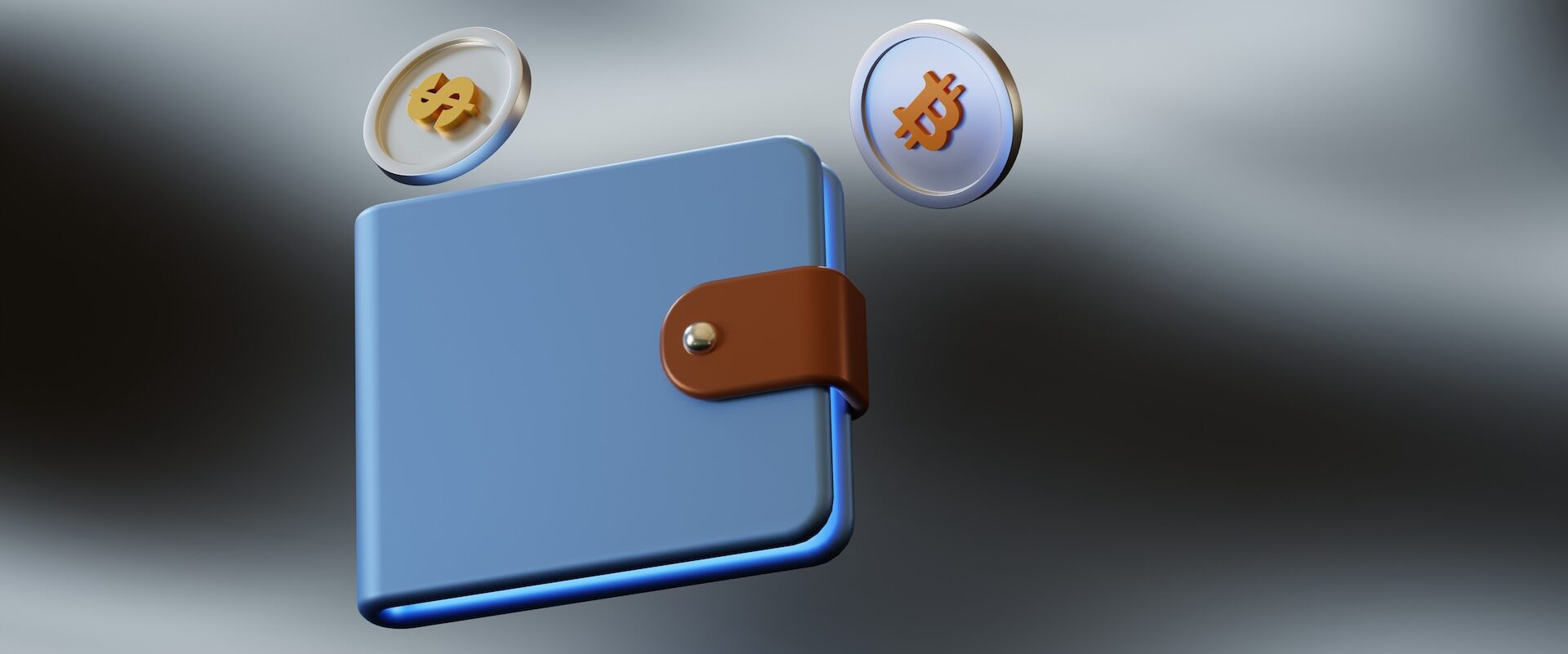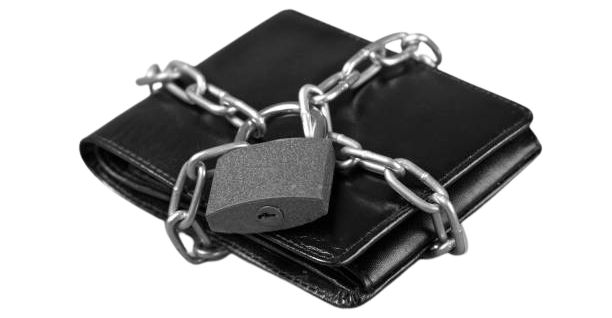
In This Article
- Types of hot wallets
- The pros and cons of hot wallets
- Are hot wallets safe?
- How are cryptocurrency hot wallets different from cold wallets?
- How to set up a hot wallet
- Things to know about hot wallets
- What are the best hot wallets in 2023
- Conclusion
- FAQs
To keep cryptocurrencies safe, you need a digital wallet. There are different types of crypto wallets. Hot wallets play a special role. They are digital wallets for cryptocurrencies that are permanently connected to the internet.
Find out in this article what this means for you and the security of your coins, which hot wallets are the best and what alternatives to hot wallets are available.
What is a hot wallet?
A hot wallet refers to a type of cryptocurrency wallet that is connected to the internet, making it accessible for quick transactions and easy management. The term “hot” comes from the fact that these wallets are actively connected to the internet and are readily available for immediate use. However, this convenience comes with a higher risk. Despite the risks, hot wallets are favored for their convenience in facilitating frequent transactions and managing cryptocurrencies that are actively traded.
Types of hot wallets

First of all, we will give you an insight into the main types of cryptocurrency hot wallets. This will help you better understand the following sections. The following are the types of hot wallets:
- Exchange wallets: These are wallets that you can use when you sign up on a crypto exchange. These are primarily used to allow you to store your purchased cryptocurrencies directly on the platform.
- Software wallets: With software wallets, you must first download the digital wallet. Again, there are different types of software wallets.
- Desktop wallets: As with a commercial program, you can access the wallet directly from your desktop.
- Mobile wallets: These are wallets that are optimized for your smartphone. So you can access your wallet from anywhere.
- Browser wallets: These are browser extensions that you download. You can connect the wallet at any time when you access a website where you can pay with cryptocurrencies. However, the website must explicitly support this wallet.
- Online wallets: Some providers offer online wallets. Here you only have to register and you will immediately receive a wallet address that you can use. Ultimately, the same principle lies here as with an exchange wallet.
We also distinguish between so-called custodial and non-custodial wallets.
Regardless of whether it is a hot wallet, wallets, where you have full control over the coins, are non-custodial wallets. Custodial wallets, on the other hand, are digital wallets where the wallet provider always has your coins and could prevent you from accessing them.
The pros and cons of a hot wallet
A hot wallet is a wallet that is permanently accessible online. This brings a number of advantages, but at the same time entails risks.
Why are hot wallets good?
Hot wallets tend to be very user-friendly. Since the wallet is always online and the private key or seed phrase is also stored online, you can use the coins from your wallet quickly and easily.
The private key is a secure password for your wallet that you must not pass on under any circumstances. A private key usually consists of many characters in a row. Unfortunately, this is very error-prone. The seed phrase is much more user-friendly. It is a randomly generated word order of 12 or 24 words.
As a rule, the provider can help you if you have difficulties with your access. This is an advantage for those who often misplace their access data.
Why are hot wallets bad?
Users are happy that they can operate a hot wallet so easily. But that makes this type of wallet less secure. Because the wallet is permanently connected to the internet, it is always exposed to hacker attacks.
In itself, a wallet is very secure and the private key is not easy to crack. However, because the private key is also stored online, attackers could access your private key. You “only” have to gain access to your computer. So the biggest weak point is not the wallet itself.
With some hot wallets, you as the user do not have the private key yourself, but only the wallet provider. You give up control of your coins, as the wallet provider is responsible for them.
Are hot wallets safe?

As explained in the example above, there is a high security risk because the wallet is continuously connected to the internet. Therefore, to be on the safe side, you should only hold a small number of coins in a hot wallet.
The danger here does not necessarily come from the wallet itself, but from how you keep the private key.
If you do not have the private key, but the wallet provider, you have to trust that the provider will handle the data in a trustworthy manner.
The founders of the crypto exchange Africrypt dived with customer deposits of 70,000 bitcoins. This was only possible because the crypto exchange kept the customers’ cryptocurrencies in their own wallets and the customers did not have the private key.
Hot wallets vs cold wallets: what’s the difference?

How are cryptocurrency hot wallets different from cold wallets? While a crypto hot wallet is continuously connected to the internet, the opposite is true for a cold wallet. A cold wallet keeps the private key safe offline. Any USB stick, CD or other storage medium can act as a cold wallet.
Even a piece of paper with the private key written on it is a cold wallet. This is what we call a paper wallet. This also includes the public key (required for transactions) and a QR code to transfer values quickly and easily. For example, the NRW Ministry of Justice relied on paper wallets when it auctioned some of the confiscated bitcoins.
Well-known cold wallets are the hardware wallets from Ledger or Trezor. One of the latest models from Ledger, the Ledger Stax, for example, has a curved E Ink touchscreen, personalization options, unrivaled security features, and NFT integration.
Is a combination of hot and cold wallets possible?
Although desktop wallets belong to the category of hot wallets, they can also be kept very securely. First of all, a desktop wallet is not always connected to the internet, but only when you are active on the computer and have an internet connection.
There are also desktop wallets that you can connect to hardware wallets. An example of this is the Exodus wallet. You can connect your Exodus wallet to the Trezor wallet by additionally downloading the so-called Trezor Bridge.
How to set up a hot wallet
If you want to use a hot wallet, you don’t actually have to do much yourself. It is sufficient if you register on a crypto exchange that offers its own wallet solution. One of the best-known examples is the Coinbase wallet. But don’t worry: Although the wallets on crypto exchanges are by definition hot wallets, they usually keep a large part of the customer deposits in their own cold wallets.
At Coinbase, for example, according to their own statements, this is 98 percent. For example, if all Coinbase accounts are hacked, attackers could only actually pay out part of the coins.
So while online solutions are kept particularly simple, there are also hot wallets that you first have to install as software on your device. Here, too, it is very easy to set up the wallet. The setup process differs very little for most wallets.
After the download, you first indicate whether you want to create a new wallet or restore a previous wallet. With a new wallet, you will receive a new private key or a seed phrase, which you should preferably not save digitally, but keep analog and then safely yourself.
Although the private key is stored in a folder on the computer in most software wallets, the risk of loss increases if you also save it in a simple text file that you have not previously encrypted.
In addition, you protect your wallet with your own password, which you should choose as securely as possible. After writing down the private key, you can start using the hot wallet.
Things to know about hot wallets
In this section, we give you some important information about hot wallets.
Hot Wallet Features & Extras
In principle, a hot wallet pursues the goal that users can keep their cryptocurrencies safe. Depending on the wallet, however, there are also some differences.
On the one hand, there are wallets that are only designed for a single cryptocurrency. Other hot wallets, such as exchange wallets, are compatible with numerous cryptocurrencies. Depending on the provider, you can even stake your coins with some wallets and thus achieve a passive crypto income.
With staking, your coins are used to maintain the cryptocurrency network. As a reward, users who provide their coins will receive a certain amount of coins predefined in the protocol. Normally you have to show technical know-how for this. However, wallet providers often do all the work for you and keep part of the staking rewards.
Wallets, where you can exchange different cryptocurrencies directly with each other through so-called swaps, are also particularly popular. So you can buy Bitcoin directly with other cryptocurrencies.
Hot Wallet Coins & Currencies
Each cryptocurrency has both cold and hot wallets. It is ultimately up to you how you want to keep the coins or your private key.
Are hot wallets compatible with Ethereum?
Yes, hot wallets are also compatible with Ethereum depending on the provider. The most well-known hot wallet for Ethereum is the Metamask wallet. The Metamask Wallet is a free wallet that you download as a browser extension. The browser extension is particularly important in order to be able to use decentralized applications (dApps) directly via the browser.
Buy bitcoin with a hot wallet
A hot wallet itself – like any other wallet – is originally intended to keep your bitcoins and other cryptocurrencies safe. However, since many hot wallets are offered as part of a crypto exchange, you can also buy Bitcoin directly.
Alternatively, software wallets such as xDEFI enable a swap between the cryptocurrencies. For example, you can buy Bitcoin with your Ethereum holdings and vice versa.
Hot wallet app
Most hot wallets are also available as an app. For example, if you use the Coinbase wallet, you can access the wallet on the go through the Coinbase app. The Metamask wallet is now also available as an app for your smartphone.
Restore hot wallet
You can only restore a hot wallet if you have the private key. Otherwise, your coins are lost forever. This is the case when it comes to non-custodial wallets. For example, if you delete a desktop wallet including all folders and have not saved the private key yourself, you will no longer be able to access the wallet.
With most third-party hot wallets, you often do not have access to the private key anyway. Instead, the company does this for you. So these are custodial wallets.
With custodial wallets, in the worst case, you can only change or forget access to the platform. Here you should log in again with a customer request to support and be able to dispose of your coins.
With non-custodial wallets, on the other hand, you urgently need the private key. Without the private key you can no longer access your coins. That is the danger if you are responsible for your funds completely independently.
Hot wallet comparison: What are the best hot wallets in 2023?

Which hot wallet is the best depends on many different factors. In particular, the assessment is very individual. For example, if you tend to forget or misplace a password, hot wallets that meet the characteristics of a non-custodial wallet are not the right choice for you.
In the following, we present four hot wallets that we believe are among the best wallets of their kind.
Coinbase wallet
You can access the Coinbase wallet if you have a customer account with the crypto exchange Coinbase. If you buy cryptocurrencies, they are initially kept in your Coinbase wallet.
You then have the choice of leaving the coins on the Coinbase wallet or transferring your cryptocurrencies to your own wallet. Particularly pleasing: You do not have to buy any cryptocurrencies on Coinbase to keep them there.
Binance wallet
First of all, the same properties apply to the Binance wallet as to the Coinbase wallet. You can use them if you have a Binance account, no matter where you buy cryptocurrencies.
You can transfer your coins at any time. With the BinanceWallet, you basically have no access to the private key either. For this purpose, Binance has also launched the Binance Trust wallet. Here you have the private key of your wallet.
The great advantage of the Binance wallet is that you can decide for yourself whether you want to use a custodial or non-custodial wallet.
Metamask wallet
The Metamask wallet is one of the best-known wallets for Ethereum and ERC20 tokens. ERC20 tokens are cryptocurrencies built on top of the Ethereum blockchain. An example of this is the Shiba Inu Coin, which does not need its own blockchain.
Available as a mobile app or browser extension, the Metamask wallet is very important to use dApps. An example of a dApp is the Aave protocol, a lending provider in the cryptocurrency sector.
If you call up the Aave protocol, you can connect your wallet directly to the protocol. Aave provides you with a simple “Connect” button for this purpose. So you can easily invest in the Aave protocol and other decentralized applications.
Exodus
Exodus is a desktop wallet. This wallet supports more than 205 cryptocurrencies. This is a software wallet that you first download onto your computer or smartphone. What makes the Exodus wallet particularly secure is the fact that it is compatible with Trezor, a hardware wallet provider.
Read also: What is a Hardware Wallet?
Conclusion
Hot wallets are easy to use and always connected to the internet. So you don’t have to take any or hardly any precautions to be able to actively use the stored coins. The disadvantage, however, is that hackers pose a greater risk.
Conversely, this means that you should never store large amounts of cryptocurrencies on hot wallets. Instead, a cold wallet is suitable in this case. The models from Ledger or Trezor have proven themselves in this category.
If you want to have full control over your wallet yourself, we recommend storing your cryptocurrencies in a non-custodial wallet. Otherwise, you have to trust that the provider is a reputable platform.
FAQs
- What are hot wallets?
Hot wallets are digital wallets used to store cryptocurrencies online. They are connected to the internet, making them convenient for frequent transactions but potentially more susceptible to hacking and cyber threats.
- How are cryptocurrency hot wallets different from cold wallets?
Cryptocurrency hot wallets are online and connected to the internet, providing quick access for transactions. Cold wallets, on the other hand, are offline storage solutions that enhance security by keeping private keys away from online threats.
- What are the best hot wallets?
Some popular hot wallet options include Coinbase Wallet, Binance Wallet Exodus, and Metamask Wallet. The best choice depends on factors like the specific cryptocurrencies you hold and the features you prioritize.
- How safe are hot wallets?
Hot wallets are more vulnerable to hack attacks compared to cold wallets due to their internet connectivity. While many providers implement security measures, there’s always a risk of hacking or phishing attacks. It’s crucial to use strong security practices such as two-factor authentication and regular updates to minimize risks.
